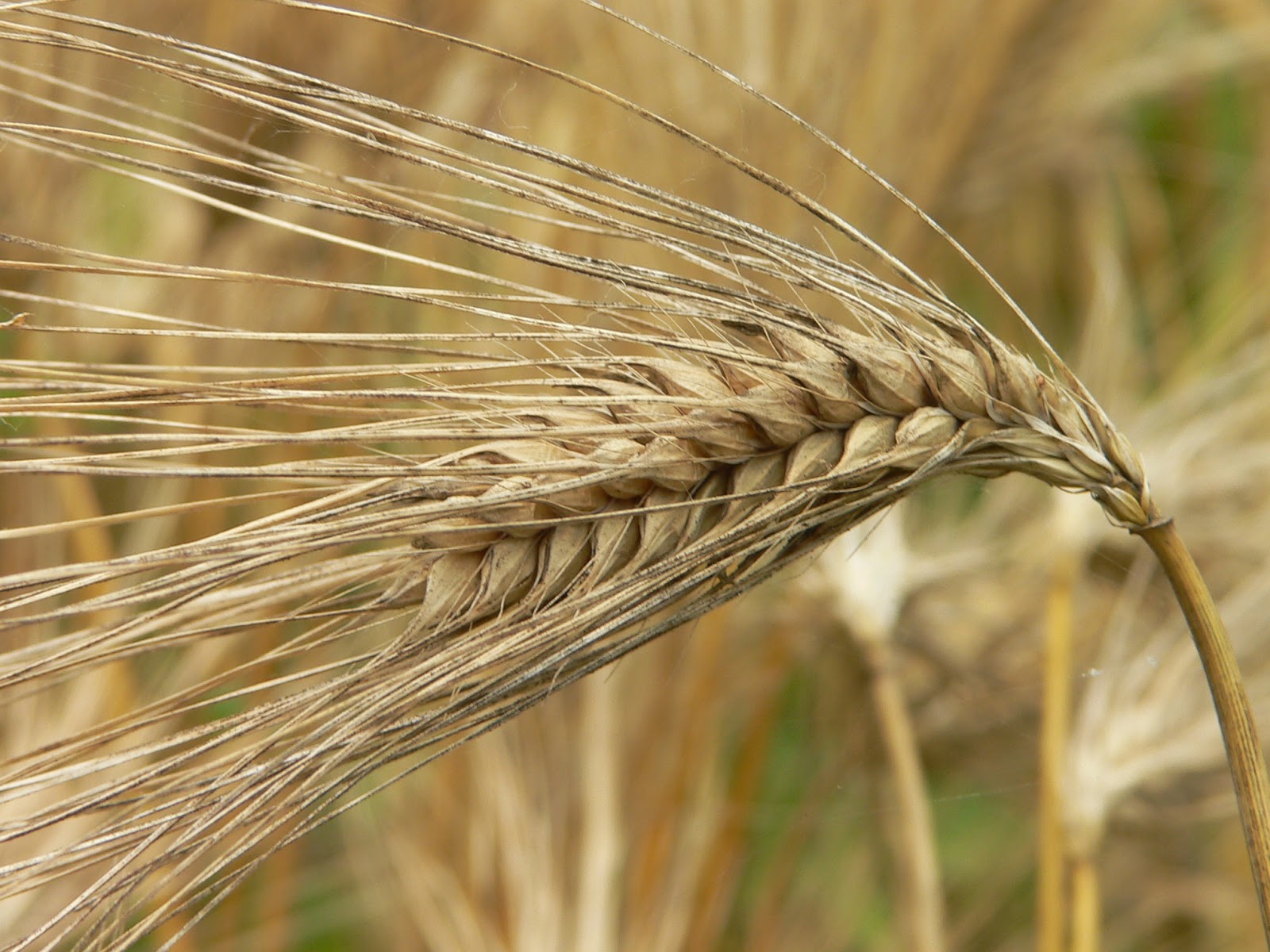Barley is one of Scotland's most important crops, used in everything from beer and whisky to Scotch broth. Scientists at the James Hutton Institute are working to produce better barley and safeguard future harvests, BBC News reports.
In many ways it is the country's foremost crop; barley is grown on about half of Scotland's arable land, and as a key ingredient in whisky, it underpins a world-wide, multi-billion pound industry.
It was the plant domesticated by the first farmers 10,000 years ago, but scientists at the James Hutton Institute have their eye more on the future of the grain than its past.
Staff based at Invergowrie, just outside Dundee, study tens of thousands of strains of the plant right down to a genetic level, to ensure the country can produce the best barley possible now and into the distant future.
In one experiment, researchers are cross-breeding wild barley from dry regions of Israel with normal Scottish barley in search of genes associated with drought tolerance.
This could help develop more robust strains of barley which could thrive even if the Scottish climate grew drier in the future.
The institute's Prof Robbie Waugh said any one of the thousands of strains he and his colleagues study could turn out to be vital.
He said: "From a scientific point of view one of the things we want to understand is how different the genomes of all these other strains are.
"Because what's almost certain is that when barley was domesticated about 10,000 years ago, it left behind lots of good versions of genes that weren't in the domesticated gene pool, and these are some of the genes that we might need to grow barley in the environments that we're going to face in the future."
As well as safeguarding the future, researchers are looking at ways to improve the quality of current crops - which could result in better drams, pints and broths.
At the Barley Genetics Suite, Dr Kelly Houston and her colleagues have been analysing the beta-glucan content of hundreds of different strains, which could yield various health benefits.
She said: "Beta-glucan is part of the plant's cell wall, and it's known to have a lot of health benefits for human gut health and reducing the chances of developing diabetes and helping alleviate the chances of becoming obese."
With bases in Invergowrie and Aberdeen, the institute is already the largest of its kind in the UK.
Bosses want to go even further and set up a £23m international centre for the science of barley, complete with its own micro-breweries and micro-distilleries to study the effects of changing the characteristics of barley.
If built, it is claimed the international centre could generate up to £40m a year and create hundreds of jobs.
In either case, Prof Waugh believes the benefits of the ongoing studies are already being reaped.
He said: "Our research in the last 25 years has provided tools and resources which have allowed breeders to make better strains of cultivars.
"These are the things that farmers adopt and grow in their fields, and in the last 25 years there has been a 1 percent increase in yield each year in barley production in the same area.
"You can see how that impacts the amount of food we produce, or the amount of raw materials we produce that goes into the products we use barley for."
Read the article HERE.
In many ways it is the country's foremost crop; barley is grown on about half of Scotland's arable land, and as a key ingredient in whisky, it underpins a world-wide, multi-billion pound industry.
It was the plant domesticated by the first farmers 10,000 years ago, but scientists at the James Hutton Institute have their eye more on the future of the grain than its past.
Staff based at Invergowrie, just outside Dundee, study tens of thousands of strains of the plant right down to a genetic level, to ensure the country can produce the best barley possible now and into the distant future.
In one experiment, researchers are cross-breeding wild barley from dry regions of Israel with normal Scottish barley in search of genes associated with drought tolerance.
This could help develop more robust strains of barley which could thrive even if the Scottish climate grew drier in the future.
The institute's Prof Robbie Waugh said any one of the thousands of strains he and his colleagues study could turn out to be vital.
He said: "From a scientific point of view one of the things we want to understand is how different the genomes of all these other strains are.
"Because what's almost certain is that when barley was domesticated about 10,000 years ago, it left behind lots of good versions of genes that weren't in the domesticated gene pool, and these are some of the genes that we might need to grow barley in the environments that we're going to face in the future."
As well as safeguarding the future, researchers are looking at ways to improve the quality of current crops - which could result in better drams, pints and broths.
At the Barley Genetics Suite, Dr Kelly Houston and her colleagues have been analysing the beta-glucan content of hundreds of different strains, which could yield various health benefits.
She said: "Beta-glucan is part of the plant's cell wall, and it's known to have a lot of health benefits for human gut health and reducing the chances of developing diabetes and helping alleviate the chances of becoming obese."
With bases in Invergowrie and Aberdeen, the institute is already the largest of its kind in the UK.
Bosses want to go even further and set up a £23m international centre for the science of barley, complete with its own micro-breweries and micro-distilleries to study the effects of changing the characteristics of barley.
If built, it is claimed the international centre could generate up to £40m a year and create hundreds of jobs.
In either case, Prof Waugh believes the benefits of the ongoing studies are already being reaped.
He said: "Our research in the last 25 years has provided tools and resources which have allowed breeders to make better strains of cultivars.
"These are the things that farmers adopt and grow in their fields, and in the last 25 years there has been a 1 percent increase in yield each year in barley production in the same area.
"You can see how that impacts the amount of food we produce, or the amount of raw materials we produce that goes into the products we use barley for."
Read the article HERE.
The Global Miller
This blog is maintained by The Global Miller staff and is supported by the magazine GFMT
which is published by Perendale Publishers Limited.
For additional daily news from milling around the world: global-milling.com




No comments:
Post a Comment